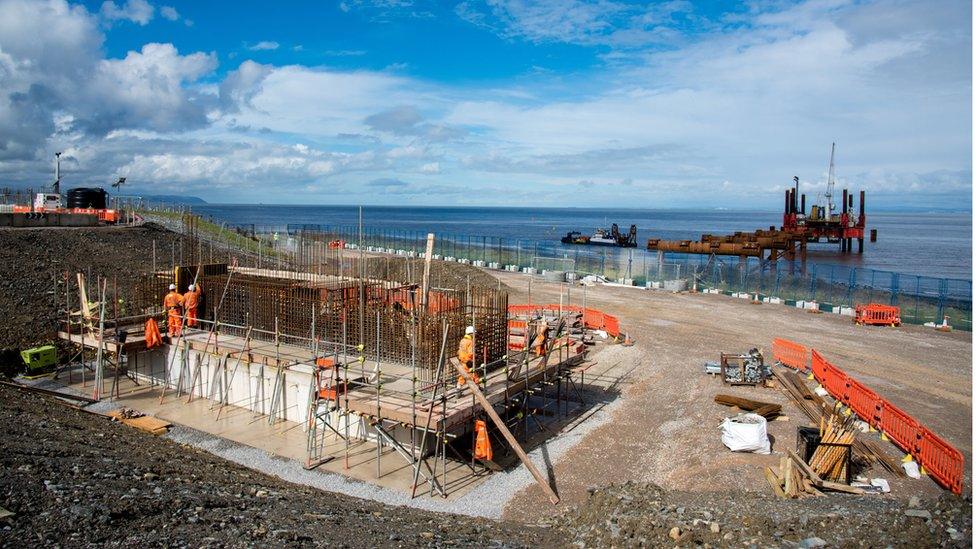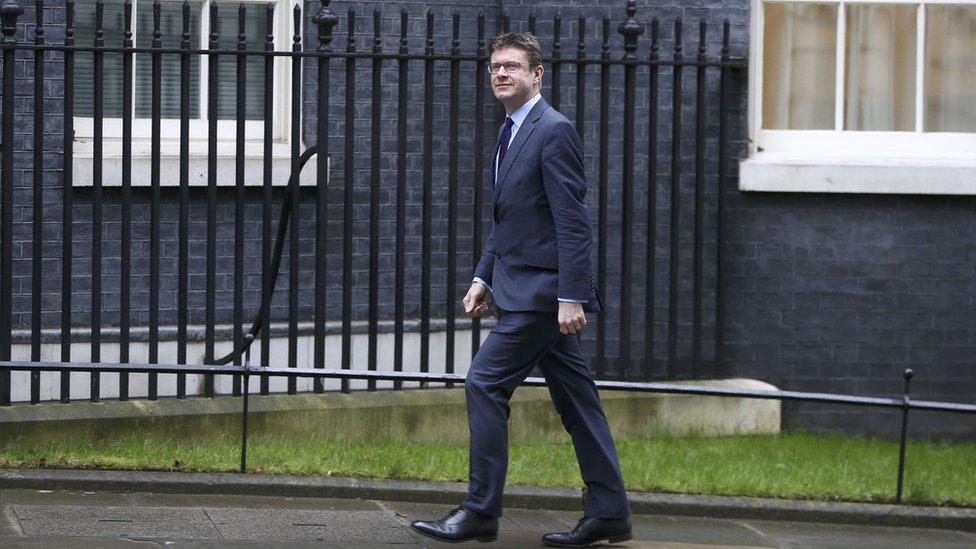Nuclear oversight needs 'urgent' action, MPs say
- Published
- comments

In March the first concrete was poured at the new Hinkley Point nuclear plant
Ministers must act "as urgently as possible" to clarify how the nuclear industry will be regulated after Brexit, MPs have warned.
The Commons energy committee, which has been investigating the impact of Brexit on energy policy, urged the UK to delay leaving Europe's nuclear regulator.
Power supplies could be threatened if a new regulator was not ready, it said.
Ministers had told the committee that guaranteeing the UK's supply of nuclear fuel was a "high priority".
The report, by the cross-party Business, Energy and Industrial Strategy Committee, warns that Brexit could distract the government from introducing policies to tackle climate change and result in key standards being removed.
It says there is a long-term risk the UK will become a "rule-taker" - unable to influence European rules and standards it has to comply with - and says plans to leave the European regulator Euratom have not been thought through.
'Madness'
Committee chairman Iain Wright said: "Ministers must act as urgently as possible. The repercussions of failing to do so are huge.
"The continued operations of the UK nuclear industry are at risk," the Labour MP said.
The committee recommended delaying the UK's departure from Euratom, until alternative arrangements were in place, saying that would "minimise and disruptions to trade and threats to power supplies".
Former Business Secretary Sir Vince Cable said it was "madness" to pull out of Euratom, adding it would be "a monumental waste of time and money".
"The report makes clear that leaving will threaten power supplies.
"It shows the dogma of the Conservative Brexit ultras that they are prepared to risk power supplies, trade and research just for misguided ideological reasons," Sir Vince said.

Business Secretary Greg Clark says that arrangements for nuclear fuel are a 'very high priority'
Justin Bowden, national officer of the GMB union, said: "The latest stark warning about Euratom and the Brexit approach to nuclear power, yet again emphasises our government's lack of anything that could be called a coherent energy policy.
"Decisive action must take place now. The electorate will not forgive politicians of any political party who fail in their duty to maintain the electricity supply," he said.
'Dumping ground'
As well as warning over regulation of the nuclear industry, the business committee's report also warned that there were risks if the UK started regulating areas like energy efficiency differently from the rest of the European Union.
"The UK could become a dumping ground for energy inefficient products," the report said.
"The committee urges the government to mirror or retain European standards for the immediate future at least," it said.
Business Secretary Greg Clark gave evidence to the committee in April. He told the MPs it was "a very high priority" that arrangements were in place that would guarantee the UK's supply of nuclear fuel.
Responding to the report, Mr Clark said: "The future of the nuclear industry in this country can only be protected by a prime minister who will actually stand up for Britain and nuclear power in Brexit negotiations.
"That's the stark choice in this election - strong leadership with Theresa May, who has already commissioned the first new nuclear power station in a generation, or entrusting Britain's nuclear future to floundering Jeremy Corbyn, a man who has spent his political career pushing for nuclear power stations to be decommissioned entirely."
In March the first concrete was poured at Hinkley Point C in Somerset, which marked the construction of Britain's first new nuclear power plant in more than 20 years.
Hinkley Point C is the first in a series of planned nuclear projects to replace ageing nuclear reactors and coal-fired power stations.